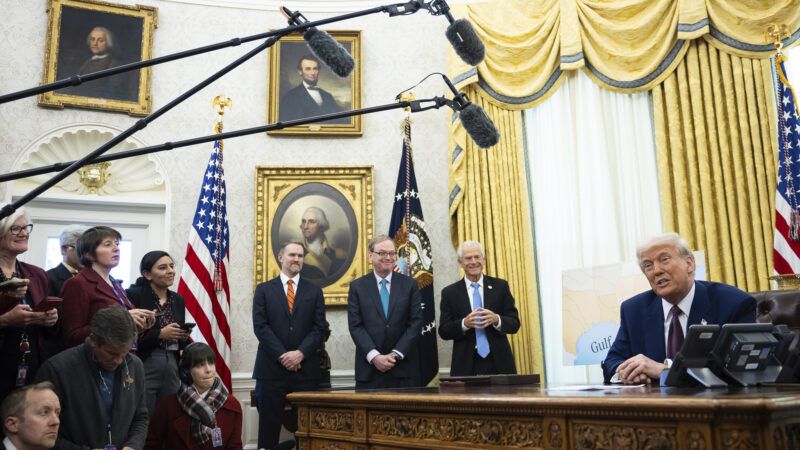Reciprocity Is a Misguided Response to U.S. Economic Strength
We do not need to copy Europe’s bad tax ideas.

A recent push for "reciprocity" in international taxation has gained traction, based on the claim that American companies pay disproportionately high taxes abroad while foreign firms pay far less in the United States. "US firms paid $370 billion abroad in value-added and income taxes," White House economist Kevin Hassett recently noted, "whereas multinational firms operating in the US paid just $57 billion." Some economists have used this point to argue that the U.S. should reciprocate by imposing a higher tax burden to level the playing field.
At first glance, the tax disparity might seem unfair, but in reality, it is a testament to America's economic strength, global competitiveness, and superior regulatory environment. The fact that U.S. firms generate substantial tax revenue abroad is not a sign of weakness—it is proof that America leads the world in business innovation, free enterprise, and economic opportunity.
The magnitude of taxes paid by U.S. companies abroad is a reflection of their global dominance. American firms, particularly in technology, finance, and manufacturing, are at the forefront of global markets. Their ability to generate revenue worldwide results in higher tax obligations in foreign jurisdictions. Meanwhile, foreign companies operating in the U.S. often have a smaller footprint, generating less taxable profit. This discrepancy is not a flaw in the system but a natural consequence of America's economic leadership.
Rather than seeking to impose reciprocal taxation measures—which would amount to mimicking the high-tax policies of other nations—the U.S. should embrace the very advantages that make it an economic powerhouse. The push for reciprocity is, in effect, an argument for adopting the economically restrictive and burdensome policies that have hindered growth in other countries. Nations that impose excessive taxes on U.S. firms do not do so out of strategic brilliance. Their high-tax regimes reflect a defensive, revenue-driven approach to economic policy rather than one based on fostering innovation and growth.
One frequently cited issue in this debate is the prevalence of value-added taxes (VATs) in foreign countries, but VATs are just one of many kinds of taxes that foreign governments impose on U.S. businesses. In addition to VATs, American firms operating abroad face digital service taxes, stringent corporate income tax regimes, and various sector-specific levies designed to extract as much revenue as possible from successful enterprises. These policies are not evidence of fairness or sound governance; they are a sign of economic defeatism. Governments that chose taxation over competitiveness to prop up inefficient domestic industries should not be imitated.
From a limited government perspective, VATs are a recipe for big government. In fact, among European countries that have adopted VATs, government spending as a share of the economy tends to grow by 7 percent to 8 percent on average, bolstering the bloated welfare states of these low-growth nations.
By contrast, the U.S. has long thrived on a system that prioritizes free markets, lower taxes, and a business-friendly regulatory environment. Rather than responding to foreign taxation with new retaliatory measures, the U.S. should continue to champion the policies that have made it the global leader in entrepreneurship and investment. Tax competition—where countries vie to create the most attractive environment for businesses—is not a problem to be solved but a fundamental driver of prosperity.
Calls for reciprocity threaten to undermine this advantage. If the U.S. imposes additional taxes on foreign firms in response to high overseas taxation of American businesses, it would risk triggering a cycle of retaliatory measures. This would harm American exporters, disrupt supply chains, and increase costs for consumers. Instead of adopting the tax-heavy policies of Europe and other regions, the U.S. should allow tax competition to work in its favor, drawing investment and reinforcing its position as the best place in the world to do business.
Rather than looking to emulate the self-defeating tax policies of other nations, the U.S. should double down on what already makes it great: a pro-business environment, competitive tax rates, and regulatory policies that encourage entrepreneurship and growth. The real danger is not that the U.S. is at a disadvantage in taxation but that misguided policies could jeopardize the very economic principles that have made it the most dynamic economy in the world.


Show Comments (72)